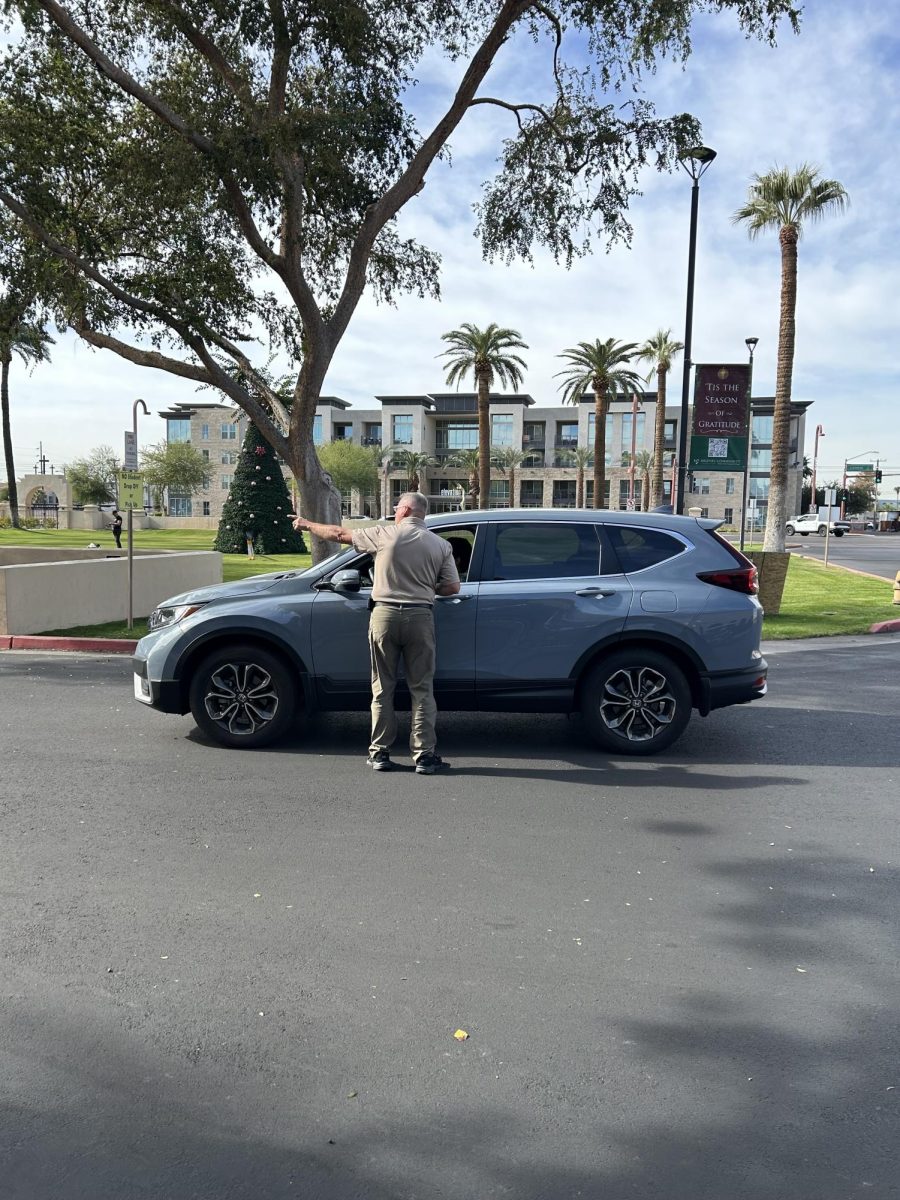By Anthony Cardellini ’17
THE ROUNDUP
In the wake of terrorist attacks in Paris that claimed 130 lives Nov. 30, Arizona Gov. Doug Ducey issued a statement saying, “I am calling for an immediate halt in the placement of any new refugees in Arizona.”
This shows a sad pattern of the generalizations many Americans make when dealing with immigration and resettlement.
Obviously, the Paris attacks were horrifying violations of human dignity. The governor’s decision, and others like it around the country, was praised, especially after it was revealed that one of the attackers may have been a Syrian refugee.
However, looking at the situation from a practical, logical viewpoint rather than from an impulsive one, it is unfounded to believe that refugees pose a large threat to the United States.
The Brookings Institute, a Washington D.C. think tank, provides several logical reasons why refugees don’t pose a serious terrorism threat.
First, terrorist groups like the Islamic State advocate for a terrorist’s travel to Iraq and Syria, not the other way around. The Islamic State has focused its money and resources on recruiting people to the Middle East to join forces.
Second, refugees by definition are fleeing from their home countries. It would make much more sense that if they were truly terrorists, they would have stayed in these Middle Eastern countries and joined groups there.
Finally, exclusion is what causes these terrorists to become angry in the first place. Not accepting refugees increases this feeling of exclusion, possibly creating later terrorism.
Indeed, a recent CNN report pointed to a new terrorist group recruitment video featuring anti-Muslim comments from Donald Trump.
However, an advocate of Ducey’s plan might point out the these arguments are good for defending refugees, but they don’t explain why a real terrorist couldn’t pose as a refugee and commit acts of violence in a western country.
But what these proponents fail to realize is the strength of America’s background test program for refugees. A Newsweek article explains the process:
First, a refugee is referred to the United States government by a United Nations organization to begin screening.This process itself eliminates over 90 percent of refugees who are not referred to the government, according to the White House.
For those who do get past this step, an application is submitted and a file created for the refugees at a government-funded refugee support center.
The article states that these centers “begin background checks that independently ensure the refugee is genuinely fleeing persecution or harm.” Data is gathered from at least four independent databases, and Syrian refugees undergo an investigation by the Department of Homeland Security.
After bypassing this step, refugees are required to interview face-to-face with a Department of Homeland Security Officer.
Katherine Newland, co-founder of the Migration Policy Institute, explained that these interviews have “been an obstacle for many refugees living in Syria in areas that are under the control of ISIS or the many, many groups in Syria that are regarded as terrorist groups by the U.S.”
Regardless of the true solidity of a terrorist threat, students at a school that is committed to justice should not believe in sacrificing the rights of many out of fear. This is made even more true when that fear turns out to be unfounded.
The number of refugees requiring humanitarian aid numbers over 4 million. Hundreds have already died trying to escape the Syrian conflict. Certainly not doing anything about the problem cannot be called a true commitment to justice.
As Catholics, we are called to stand up for what is right in the face of our fear. In this case, helping those most in need is what is right, and the facts give us no reason to have true fear.
















